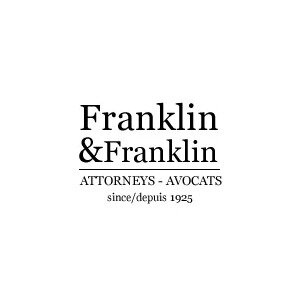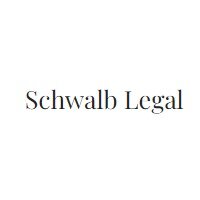Best Landlord & Tenant Lawyers in Montreal
Share your needs with us, get contacted by law firms.
Free. Takes 2 min.
Free Guide to Hiring a Real Estate Lawyer
List of the best lawyers in Montreal, Canada
About Landlord & Tenant Law in Montreal, Canada
Landlord and tenant law in Montreal, Canada governs the rights and responsibilities of both landlords and tenants in rental properties. These laws aim to protect the interests of both parties and ensure that everyone has a safe and fair housing experience. Understanding these laws is crucial for a smooth and lawful landlord-tenant relationship.
Why You May Need a Lawyer
While some landlord-tenant issues can be resolved through communication, there are certain situations where legal help may be necessary. Some common situations where you may need a lawyer include:
- Eviction: If you are facing eviction or believe you are being wrongfully evicted, a lawyer can guide you through the legal process and protect your rights.
- Lease Agreement: When negotiating or signing a lease agreement, it can be beneficial to have a lawyer review it to ensure that your rights are protected and you understand the terms and conditions.
- Disputes: If you find yourself in a dispute with your landlord or tenant regarding matters such as rent, repairs, or security deposits, a lawyer can help mediate or represent you in court if necessary.
- Termination: If you are considering terminating a lease or need assistance in understanding the legal grounds for termination, a lawyer can provide guidance.
- Violations: If you believe your landlord or tenant has violated any laws or regulations, consulting with a lawyer can help you understand your options and seek appropriate remedies.
Local Laws Overview
In Montreal, Canada, several local laws are particularly relevant to landlord and tenant relationships. Some key aspects include:
- Rent Control: Montreal has rent control measures in place to regulate the amount landlords can increase rent annually.
- Security Deposits: Laws outline the maximum amount a landlord can charge as a security deposit and the conditions for its return.
- Repairs and Maintenance: Landlords have a legal obligation to provide and maintain safe and habitable premises, including necessary repairs.
- Eviction Process: Specific procedures must be followed to evict a tenant, and landlords are prohibited from engaging in self-help eviction methods.
- Tenant Rights: Tenants have rights such as privacy, protection against discrimination, and the right to challenge unfair rent increases.
Frequently Asked Questions
1. Can a landlord increase rent whenever they want?
No, landlords in Montreal can only increase rent once a year, and the allowable percentage increase is determined by the government. Rent increases require proper notice and must comply with the Rent Control Act.
2. Can a landlord enter my rental unit without permission?
Except in emergencies, landlords must provide at least 24 hours' written notice before entering a rental unit. They can only enter during reasonable hours and for specific reasons outlined in the law.
3. What should I do if my landlord refuses to make necessary repairs?
If your landlord fails to address repair requests for essential services or necessary repairs, you can report the issue to the Regie du logement (Rental Board). They can guide you through the process of resolving the issue and, if necessary, initiate legal action against your landlord.
4. Can a landlord evict me without a reason?
No, landlords in Montreal cannot evict a tenant without a valid reason, such as non-payment of rent or engaging in illegal activities. The eviction process must follow legal procedures and require appropriate notice.
5. How can I terminate my lease before it expires?
To terminate a lease before it expires, you typically need a valid reason, such as a significant change in circumstances. If you are unsure about your options, seeking legal advice is recommended to understand the specific requirements and potential consequences.
Additional Resources
For further information and assistance regarding landlord and tenant matters in Montreal, Canada, consider the following resources:
- Regie du logement (Rental Board): https://www.rdl.gouv.qc.ca/en
- Canadian Bar Association - Quebec Branch: https://www.cbapd.org/quebec
- Community Legal Information Center: https://clicjuridique.ca/en
Next Steps
If you require legal assistance with a landlord and tenant matter in Montreal, Canada, it is essential to consult with an experienced lawyer specialized in this field. They will provide personalized advice, guide you through the legal process, and protect your rights throughout your landlord-tenant relationship.
Lawzana helps you find the best lawyers and law firms in Montreal through a curated and pre-screened list of qualified legal professionals. Our platform offers rankings and detailed profiles of attorneys and law firms, allowing you to compare based on practice areas, including Landlord & Tenant, experience, and client feedback.
Each profile includes a description of the firm's areas of practice, client reviews, team members and partners, year of establishment, spoken languages, office locations, contact information, social media presence, and any published articles or resources. Most firms on our platform speak English and are experienced in both local and international legal matters.
Get a quote from top-rated law firms in Montreal, Canada — quickly, securely, and without unnecessary hassle.
Disclaimer:
The information provided on this page is for general informational purposes only and does not constitute legal advice. While we strive to ensure the accuracy and relevance of the content, legal information may change over time, and interpretations of the law can vary. You should always consult with a qualified legal professional for advice specific to your situation.
We disclaim all liability for actions taken or not taken based on the content of this page. If you believe any information is incorrect or outdated, please contact us, and we will review and update it where appropriate.













